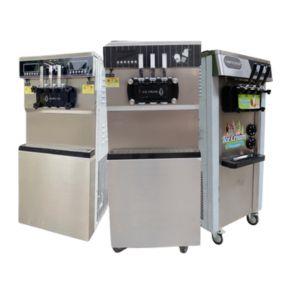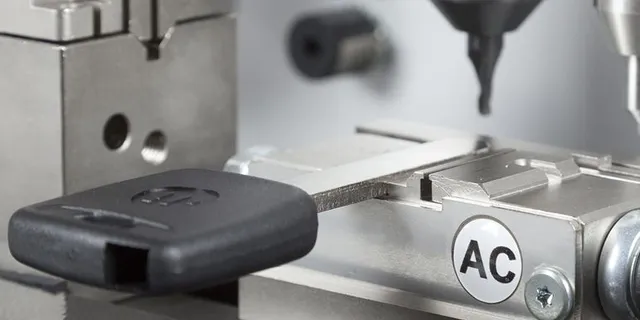Advancements in Medical Radiation Detection: Tools Shaping Healthcare and Diagnostics

Introduction
Medical radiation detection devices play a crucial role in the healthcare and diagnostics landscape. These devices are integral to ensuring the safety and effectiveness of medical imaging techniques such as X-rays, CT scans, and nuclear medicine. As radiation exposure can have detrimental effects, accurate and reliable detection devices are essential to monitor radiation levels, protect patients and healthcare workers, and improve diagnostic accuracy. As the medical industry continues to advance, the future of medical radiation detection is poised to incorporate new technologies, enhancing their capabilities and broadening their applications.
The Role of Radiation Detection Devices in Healthcare
Radiation detection devices are utilized in various medical settings, including hospitals, diagnostic imaging centers, and radiation therapy departments. These tools help in monitoring and controlling the amount of radiation used during diagnostic procedures and treatments. The main purposes of medical radiation detection devices include:
-
Ensuring Patient Safety: They help detect and measure radiation exposure to patients, ensuring that diagnostic imaging and treatment are carried out within safe limits.
-
Protecting Healthcare Workers: These devices protect healthcare professionals by monitoring radiation exposure during procedures involving ionizing radiation.
-
Improving Diagnostic Accuracy: Accurate radiation measurements are vital for optimizing imaging procedures, improving image quality, and reducing the need for repeat scans.
-
Regulatory Compliance: They ensure that healthcare facilities comply with safety standards and regulatory requirements set by organizations like the FDA and the International Atomic Energy Agency (IAEA).
Types of Medical Radiation Detection Devices
There are several types of medical radiation detection devices used in healthcare:
-
Geiger-Müller Counters: These handheld devices are widely used for detecting alpha, beta, and gamma radiation. They are portable and easy to use, making them ideal for quick assessments.
-
Scintillation Detectors: These are used for detecting gamma rays and X-rays and are often found in nuclear medicine departments. They offer high sensitivity and precision.
-
Ionization Chambers: These devices are used for measuring high-energy radiation in diagnostic and therapeutic settings, providing precise and reliable readings.
-
Personal Dosimeters: Worn by healthcare workers, personal dosimeters measure radiation exposure over time, ensuring safety during their work with radiology equipment.
-
Thermoluminescent Dosimeters (TLDs): These devices measure cumulative radiation exposure over a longer period, commonly used in radiation therapy departments.
The Future of Medical Radiation Detection
The future of medical radiation detection is characterized by technological advancements aimed at improving accuracy, efficiency, and safety in radiation measurement. Some key trends shaping the future of radiation detection devices include:
-
Integration of Artificial Intelligence (AI): AI can enhance the capabilities of radiation detection devices, enabling real-time data analysis and predictive insights. AI algorithms could optimize imaging procedures, helping to minimize radiation exposure while maintaining diagnostic quality.
-
Miniaturization and Portability: Advances in materials and electronics are making medical radiation detection devices smaller, lighter, and more portable, allowing healthcare professionals to perform radiation checks quickly and efficiently in various settings.
-
Real-time Monitoring and Alerts: Future devices may offer continuous, real-time radiation monitoring, alerting healthcare workers and patients immediately if unsafe radiation levels are detected. This will enhance safety measures and provide immediate response capabilities.
-
Improved Sensitivity and Resolution: New radiation detection technologies, such as advanced scintillation crystals or semiconductor-based detectors, promise higher sensitivity and better resolution, allowing for more precise radiation measurements even at lower exposure levels.
-
Wireless and Cloud Integration: Integration with wireless networks and cloud-based platforms could allow healthcare facilities to monitor radiation levels across multiple devices and locations, ensuring centralized and streamlined data collection and analysis.
-
Personalized Radiation Dose Management: Devices may evolve to offer personalized radiation dose tracking, ensuring that each patient receives the minimum necessary radiation for their specific diagnostic or treatment needs, while also reducing unnecessary exposure.
Market Growth and Demand for Medical Radiation Detection Devices
The demand for medical radiation detection devices is expected to grow steadily due to several factors:
-
Increase in Diagnostic Imaging Procedures: The rising use of imaging techniques like CT scans, MRI, and X-rays in diagnostics is driving the need for more sophisticated radiation detection devices to ensure safety.
-
Growing Focus on Patient and Worker Safety: As the risks associated with radiation exposure become more recognized, both healthcare facilities and regulatory bodies are placing greater emphasis on the proper use and monitoring of radiation levels.
-
Technological Advancements in Radiation Therapy: With the development of more advanced radiation therapies for cancer treatment, there is a heightened demand for reliable radiation detection devices to monitor and control radiation doses during therapy.
-
Regulatory Pressures: Governments and international organizations continue to impose stricter regulations on radiation safety, which will fuel the adoption of better detection devices in medical settings.
Competitive Landscape
The competitive landscape of the medical radiation detection devices market includes a mix of established players and emerging companies focused on developing innovative solutions. Key market players include:
-
Thermo Fisher Scientific: A leading company providing radiation detection devices for medical, environmental, and industrial applications.
-
Landauer, Inc.: Specializes in personal dosimetry and radiation safety products, offering a range of services to ensure patient and worker safety.
-
Mirion Technologies: Offers a broad array of radiation detection and measurement solutions for healthcare, industrial, and environmental applications.
-
Fluke Biomedical: A provider of testing and measurement tools, including medical radiation detectors and diagnostic equipment for healthcare institutions.
-
Biosensors International Group: Focuses on radiation protection and detection technology, developing solutions for medical and industrial sectors.
Conclusion
Medical radiation detection devices are vital tools that ensure the safety of both patients and healthcare workers, improving the quality of medical imaging and radiation therapy. The future of medical radiation detection looks promising, with innovations such as AI integration, real-time monitoring, and improved sensitivity expected to revolutionize the field. As healthcare continues to evolve and more diagnostic and therapeutic procedures rely on radiation, the role of these devices will become even more crucial in safeguarding public health. The market for these devices will continue to expand, driven by technological advancements, increased awareness of radiation risks, and regulatory changes, ultimately enhancing the overall quality of care.
Latest Blogs Offered By DelveInsight:
-
Pfizer’s ABRYSVO Outpaces GSK’s AREXVY with Expanded FDA Approval – But Can It Sustain the Momentum?
-
5 Promising Exosome-based Therapies Paving the Way for Personalized Medicine
-
7 Key Technologies Pioneering Cybersecurity in the Healthcare Sector
-
7 Key Technologies Pioneering Cybersecurity in the Healthcare Sector
-
Pfizer’s ABRYSVO Outpaces GSK’s AREXVY with Expanded FDA Approval – But Can It Sustain the Momentum?
-
CAR-T Cells vs. CAR-Exosome Agents: Exploring the Future of Cancer Immunotherapy
Latest Reports
Failed Back Surgery Syndrome Market | Familial Hypercholesterolemia Market | Familial Lipoprotein Lipase Deficiency Pipeline | Fibrocystic Breast Condition Market | Fucosidosis Market | Glycogen Storage Disease Market | Head And Neck Cancer Market | Hemorrhagic Cystitis Market | Hepatic Encephalopathy Epidemiology Forecast | Hepatic Encephalopathy Market | Her2-negative Breast Cancer Market | Her2-positive Early Breast Cancer Market | Hiatal Hernia Market | Hospital-acquired And Ventilator-associated Bacterial Pneumonia Habp/vabp Market | Hpv16+ Cancer Market | Hypereosinophilic Syndrome Market | Hyperkalemia Market | Hypertrophic Cardiomyopathy Market | Immunologic Deficiency Syndrome Market | Implantable Infusion Pump Market | Implantable Infusion Pumps Market | Intracranial Arterial Diseases Market





